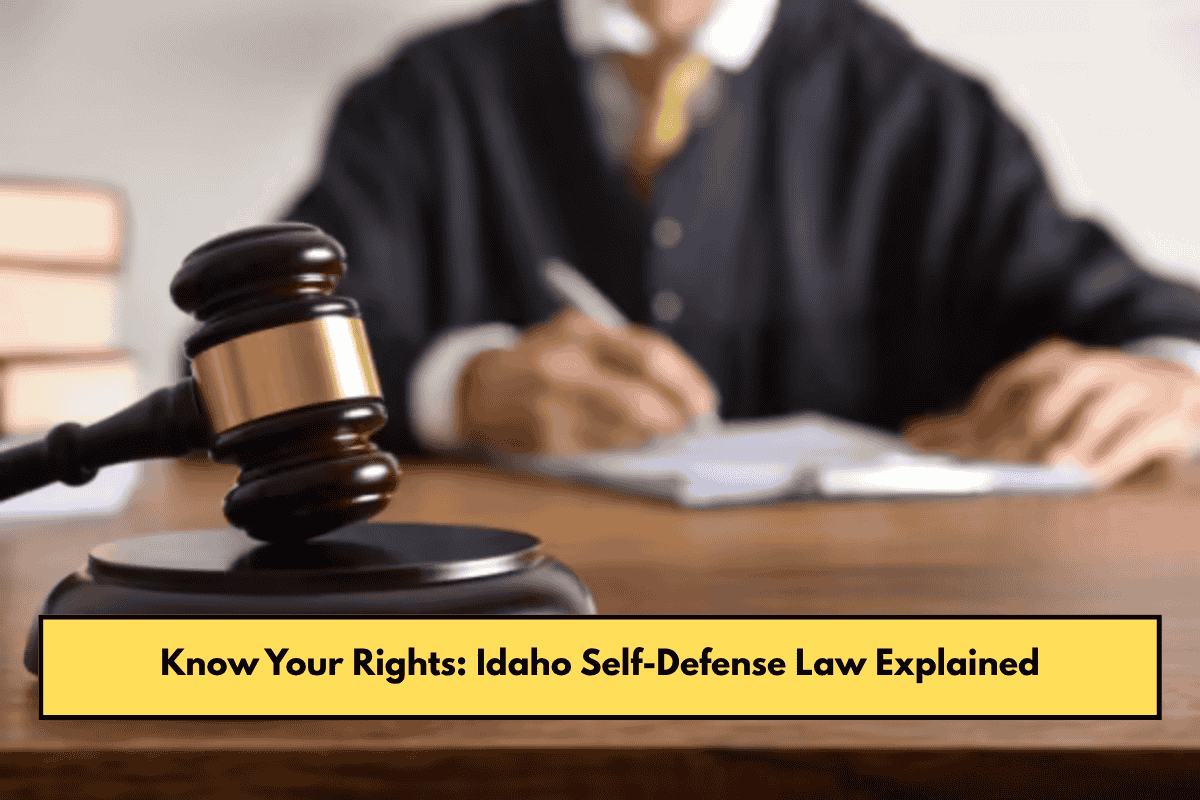Understanding your rights under Idaho’s self-defense laws is essential for responsible citizenship and personal safety. Idaho law provides robust protections for individuals who act to defend themselves, their families, and their property, but these rights come with important limitations and responsibilities. Here’s a comprehensive overview of how self-defense works in Idaho.
Imminent Threat and Reasonable Fear
Idaho law allows individuals to use force to protect themselves or others when they reasonably believe they face an imminent threat of harm or unlawful force. The threat must be immediate—meaning you cannot claim self-defense for a future or past danger. The law also requires that your fear of harm be reasonable; a hypothetical “reasonable person” in your situation must also perceive the threat as serious.
Proportional Response
The force you use in self-defense must be proportional to the threat you face. Deadly force is only justified if it is necessary to prevent death or serious bodily injury to yourself or someone else. For example, responding to a slap with lethal force would be considered excessive and unjustified. If the threat ceases, your justification for using force also ends.
No Duty to Retreat: Stand Your Ground
Idaho is a “Stand Your Ground” state. This means you have no legal obligation to retreat from a confrontation before using force in self-defense, as long as you are in a place where you have a legal right to be. Whether you are at home, at work, or in public, you can stand your ground if you reasonably believe force is necessary to prevent imminent harm.
Castle Doctrine: Defending Your Home and Property
Idaho’s Castle Doctrine, strengthened in 2018, gives you the right to use deadly force to protect yourself and others from intruders in your home, yard, business, or even your car. The law presumes that an intruder has bad intent, and you do not need to determine their motives before acting. However, the force used must still be reasonable under the circumstances, and the intruder must be committing a felony or intending harm.
Former Idaho Attorney General David Leroy explains, “The bad intent of the intruder is presumed and therefore the right of defense, even up to justifiable homicide, is presumed to the homeowner, the business owner or the occupant of the car”. Outside your property, however, your actions will be scrutinized more closely, and the justification for using force must be stronger.
Legal Weapons for Self-Defense
Idaho law permits a variety of self-defense weapons:
- Firearms: Open carry is allowed for citizens 18 or older. Concealed carry requires a permit, with “basic” and “enhanced” options. Firearms are prohibited in certain locations like schools and government buildings.
- Non-lethal Weapons: Pepper spray, stun guns, and personal alarms are legal for self-defense. Training is recommended for effective and responsible use.
Practical Considerations and Responsibilities
While the law supports your right to defend yourself, gun ownership and self-defense carry significant responsibility. Instructors and legal experts emphasize that lethal force should only be used when you or others are in immediate danger—not merely to protect property. Training in both the mechanical and mental aspects of self-defense is strongly advised, and understanding the legal consequences of your actions is crucial.
Key Takeaways
- You can use force, including deadly force, if you reasonably believe it is necessary to prevent imminent harm.
- The force used must be proportional to the threat.
- Idaho’s Stand Your Ground law means you do not have to retreat before defending yourself.
- The Castle Doctrine allows you to defend your home, business, car, and yard with deadly force against intruders.
- Legal self-defense weapons include firearms (with restrictions), pepper spray, and stun guns.
- Always prioritize life over property and seek training to ensure you act within the law.
Knowing your rights—and the limits of those rights—can help you make informed, responsible decisions in high-stress situations and avoid legal pitfalls.
Sources
- https://www.adbattorneys.com/blog/2023/09/understanding-self-defense-in-idaho-criminal-cases/
- https://crateclub.com/blogs/loadout/understanding-what-self-defense-weapons-are-legal-in-idaho
- https://crateclub.com/blogs/loadout/does-idaho-have-a-self-defense-law
- https://idahonews.com/news/local/idahos-castle-doctrine-allows-defense-of-people-and-property
- https://legislature.idaho.gov/statutesrules/idstat/title19/t19ch2/sect19-202a/















